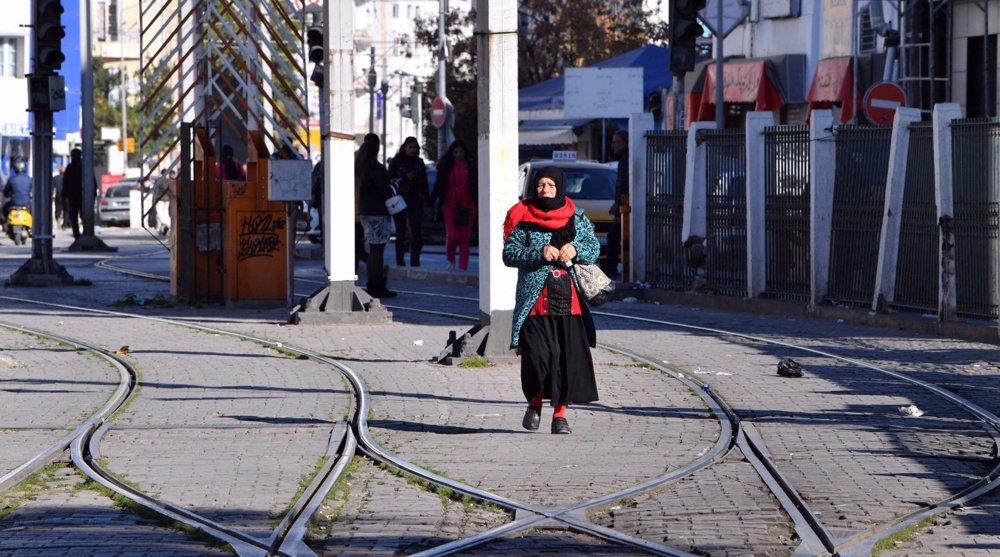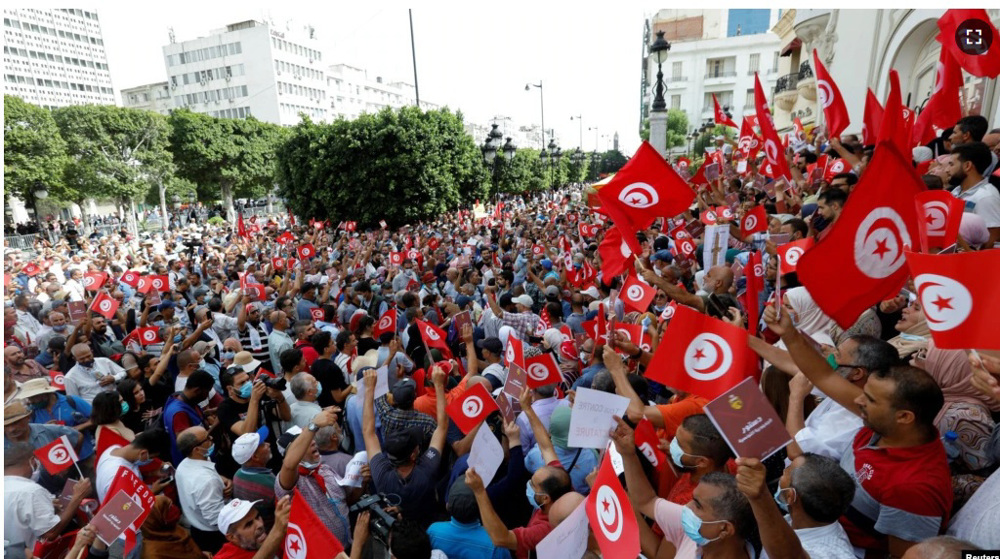Transport paralyzed in Tunisian capital as workers strike over pay
A massive strike over pay by transport workers has crippled transport in the Tunisian capital.
On Monday, staff from state-owned public transport firm Transtu, which runs around 250 bus routes and 15 tram lines in Tunis, went on strike.
Hundreds of workers also demonstrated in Kasbah Square, outside the office of Prime Minister Najla Bouden, demanding payment Transtu owes them.
The protesters say they simply want their rights and that they are not asking for an advantage.
The strikers were responding to a call by the transport section of the powerful Tunisian General Labour Union (UGTT) over delays in salaries and the lack of an end-of-year bonus.
The crippling strike, the latest in a series of similar actions, came as the North African nation is currently struggling with debts of over 100 percent of the gross domestic product and is trying to secure a nearly two billion-dollar bailout from the International Monetary Fund (IMF).
Tunisia is currently embroiled with a severe economic crisis, with frequent shortages of basic goods from petrol to cooking oil.
"The financial situation in the company is really difficult," said Transtu spokesperson Hayat Chamtouri, adding that the industrial action totally crippled "the majority" of transport services across Tunis, which is home to almost three million people.
The UGTT, with one million members, has pledged to hold a series of protests. It has already approved a strike by air, land and sea transport workers on January 25 and 26 to protest against what it called "the government's marginalization of public companies."
According to Wajih Zidi, an official from the UGTT, Monday's strike is open-ended and will continue until the workers' demands are met.
Missile fired from Yemen hits Tel Aviv
VIDEO | Iran emerging as aviation service hub through innovative solutions
Iraq exhuming remains of 100 Kurdish women, children killed by Saddam
Panama rejects talks with US over canal control
VIDEO | Israel Yemen aggression
HTS rulers name al-Qaeda operative as Syria's new spy chief
Iran voices concern about rising insecurity, violence in Syria
VIDEO | Karachi sit-in amplifies nationwide call for justice for Parachinar victims











 This makes it easy to access the Press TV website
This makes it easy to access the Press TV website